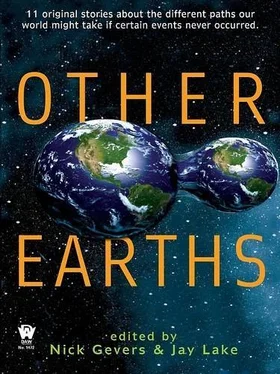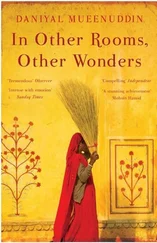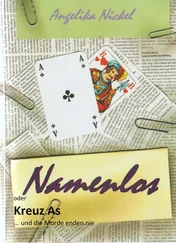I suppose this makes me sound like a monster, a sort of female John Brown, confusing righteousness with violence and murder with redemption.
I am not such a monster. I confess a certain admiration for those who, like President Douglas, worked so very hard to prevent the apocalypse of which I dreamed last night, even if I distrust their motives and condemn their means. The instinct for peace is the most honorable of all Christian impulses. My conscience rebels at a single death, much less one million.
But if a war could have ended slavery …would I have wished it? Welcomed it?
What is unbearable, Mr. Camber, is that I don’t know that I can answer my own horrifying question either honestly or decently. And so I have to ask: Can you?
I puzzled it out. Then I gave Percy a blank stare. “Why are you showing me this?”
“We’re alike in many ways, as you say, Tom. But not all ways. Not all ways. Mrs. Stowe asks an interesting question. Answering it isn’t easy. I don’t know your mind, but fundamentally, Tom, despite all the sympathies between us, the fact is, I suspect that in the end you might give the wrong answer to that question—and I expect you think the same of me.”
There was another difference, which I did not mention to Percy, and that was that every time I remarked on our similarities, I could hear my wife’s scornful voice saying (as she had said when I first shared the idea of this project with her), “Oh, Tom, don’t be ridiculous. You’re nothing like that Percy Camber. That’s your mother talking—all that abolitionist guilt she burdened you with. As if you need to prove you haven’t betrayed the cause , whatever the cause is, exactly.”
Maggie failed to change my mind, though what she said was true.
“From about eight feet down,” Ephraim said cryptically, lifting the lantern.
Eight feet is as high an average man can reach without standing on something. Between eight feet and the floor is the span of a man’s reach.
“You see, sir,” Ephraim said, “my son and I were held in separate barracks. The idea behind that was that a man might be less eager to escape if it meant leaving behind a son or father or uncle. The overseers said, if you run, your people will suffer for it. But when my chance come I took it. I don’t know if that’s a sin. I think about it often.” He walked toward the nearest wall, the lantern breaking up the darkness as it swayed in his grip. “This barracks here was my son’s barracks.”
“Were there many escapes?” Percy asked.
I began to see that something might have been written on the wall, though at first it looked more like an idea of writing: a text as crabbed and indecipherable as the scratchings of the Persians or the Medes.
“Yes, many,” Ephraim said, “though not many successful. At first there was fewer guards on the gates. They built the walls up, too, over time. Problem is, you get away, where is there to go? Even if you get past these sandy hills, the country’s not welcoming. And the guards had rifles, sir, the guards had dogs.”
“But you got away, Ephraim.”
“Not far away. When I escaped it was very near the last days of Pilgassi Acres.” (He pronounced it Pigassi , with a reflexive curl of contempt on his lips.) “Company men coming in from Richmond to the overseer’s house, you could hear the shouting some nights. Rations went from meat twice a week to a handful of cornmeal a day and green bacon on Sundays. They fired the little Dutch doctor who used to tend to us. Sickness come to us. They let the old ones die in place, took the bodies away to bury or burn. Pretty soon we knew what was meant to happen next. They could not keep us, sir, nor could they set us free.”
“That was when you escaped?”
“Very near the end, sir, yes, that’s when. I did not want to go without Jordan. But if I waited, I knew I’d be too weak to run. I told myself I could live in the woods and get stronger, that I would come back for Jordan when I was more myself.”
He held the lantern close to the board wall of this abandoned barracks.
Percy was suffering more from his wound now than he had seemed to when he received it, and he grimaced as I helped him follow Ephraim. We stood close to the wild man and his circle of light, though not too close—I was still conscious of his rifle and of his willingness to use it, even if he was not in a killing mood right now.
The writing on the wall consisted of names. Hundreds of names. They chased each other around the whole of the barn in tight horizontal bands.
“I expect the overseers would have let us starve if they had the time. But they were afraid federal men would come digging around. There ought to be nothing of us left to find, I think was the reasoning. By that time the cholera had taken many of us anyhow, weak and hungry as we were, and the rest …well, death is a house, Mr. Camber, with many doorways. This is my son’s name right here.”
Jordan Nash was picked out by the yellow lantern light.
“Dear God,” said Percy Camber, softly.
“I don’t think God come into it, sir.”
“Did he write his own name?”
“Oh, yes, sir. A Northern lady taught us both to read, back in the Missouri camp. I had a Bible and a copybook from her. I still read that Bible to this day. Jordan was proud of his letters.” Ephraim turned to me as if I, not Percy, had asked the question: “Most of these men couldn’t write nor read. Jordan didn’t just write his own name. He wrote all these names. Each and every one. A new man came in, he would ask the name and put it down as best he could. The list grew as we came and went. Many years’ worth, sir. All the prisoners talked about it, how he did that. He had no pencil or chalk, you know. He made a kind of pen or brush by chewing down sapling twigs to soften their ends. Ink he made all kind of ways. He was very clever about that. Riverbottom clay, soot, blood even. In the autumns the work crews drawing water from the river might find mushrooms which turn black when you picked them, and they brought them back to Jordan—those made fine ink, he said.”
The pride in Ephraim’s voice was unmistakable. He marched along the wall with his lantern held high so we could see his son’s work in all its complexity. All those names, written in the space between a man’s reach and the floor. The letters were meticulously formed, the lines as level as the sea. Some of the names were whole names, some were single names, some were the kind of whimsical names given to house servants. They all ran together, to conserve space, so that in places you had to guess whether the names represented one person or two.
… John Kincaid Tom Abel Fortune Bob Swift Pompey Atticus Joseph Wilson Elijah Elijah Jim Jim’s Son Rufus Moses Deerborn Moses Raffity …
“I don’t know altogether why he did it,” Ephraim said. “I think it made him feel better to see the men’s names written down. Just so somebody might know we passed this way, he said.”
Jordan lived in this barracks from eight foot down. And so did shockingly many others.
“This is why you shot at us,” Percy whispered, a kind of awe or dread constricting his throat.
“I make it seem dangerous up here, yes, sir, so that nobody won’t come back and take it down or burn it. And yet I suppose they will sooner or later whether I scare anybody or not. Or if not that, then the weather will wear it down. I keep it best I can against the rain, sir. I don’t let birds or animals inside. Or even the daylight, sir, because the daylight fades things, that ink of Jordan’s is sensitive to it. All be gone one day, I suppose, but I will be too, bye and bye, and yourselves as well, of course.”
Читать дальше












